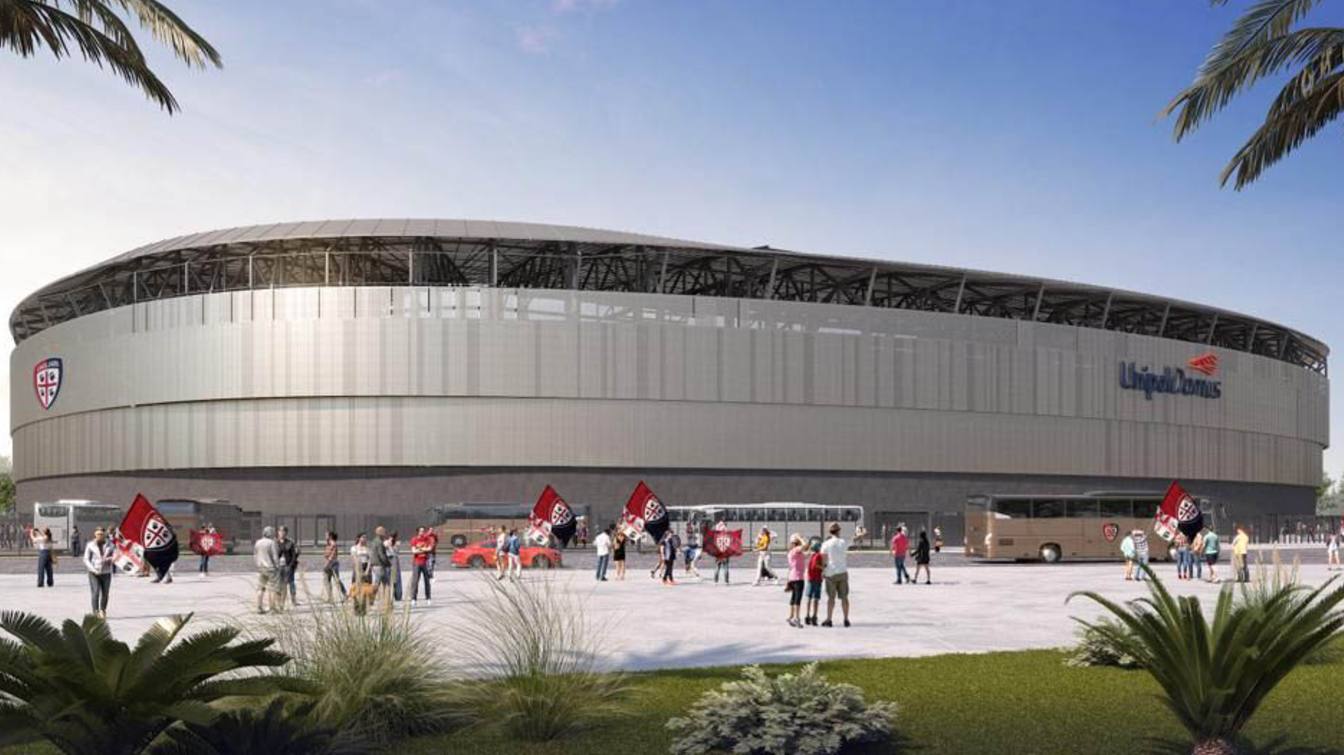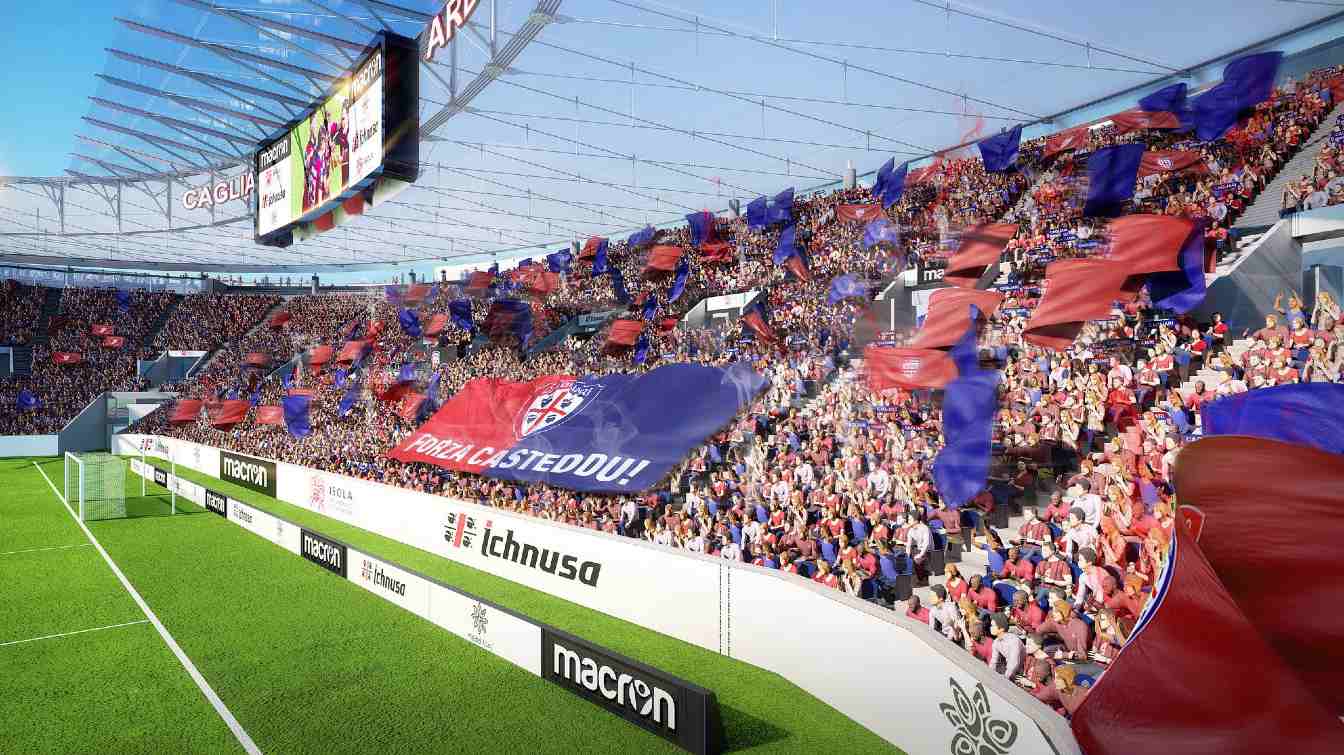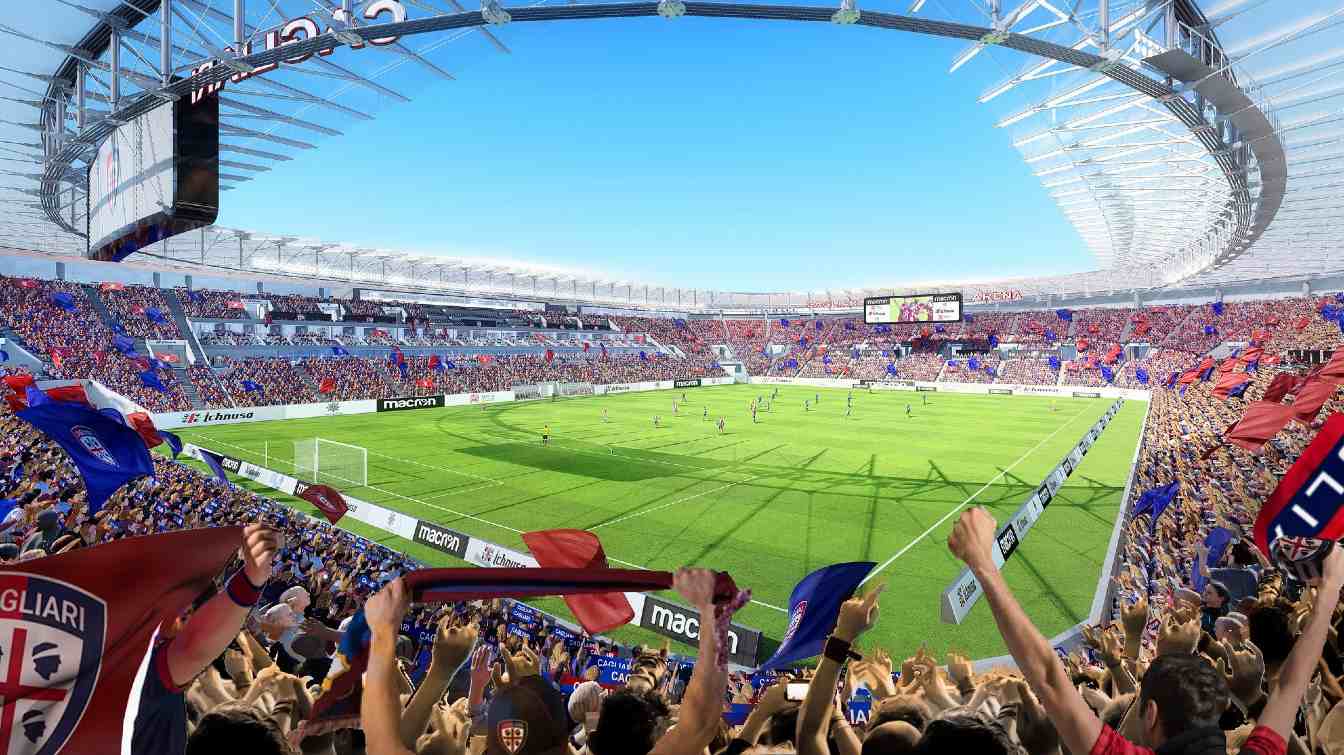Italy: U.S. Investors to speed up construction of Cagliari stadium
source: StadiumDB.com; author: Paulina Skóra
 The entry of a group of U.S. investors connected to Maurizio Fiori into the capital of Cagliari Calcio marks a strategic turning point in the club’s history. This is not just a capital injection, but above all a signal of a paradigm shift — combining local identity with international ambition and the long-awaited development of infrastructure.
The entry of a group of U.S. investors connected to Maurizio Fiori into the capital of Cagliari Calcio marks a strategic turning point in the club’s history. This is not just a capital injection, but above all a signal of a paradigm shift — combining local identity with international ambition and the long-awaited development of infrastructure.
Advertisement
New partners, new prospects
The investor group, led by Maurizio Fiori — CEO of Praxis Capital Management — acquired a minority stake in Cagliari Calcio. While the exact percentage has not been disclosed, it is reported to be between 30–40% of the club’s capital, valued at approximately €100 million net. Tommaso Giulini remains at the helm of the club, maintaining operational control, but now benefits from a partner with global experience — a key factor in modern football for brand growth and ambitious infrastructure projects.
New stadium: Gigi Riva
The most tangible result of the collaboration is the acceleration of the construction of a new stadium, to be named after the club’s legendary striker, Gigi Riva. The U.S. partners bring expertise in real estate and project financing, crucial in the context of the Italian market, where a lack of modern stadiums is a major barrier to club development. Their contribution is catalytic: they do not take operational control, but speed up investment processes, providing greater financial stability.
As CEO Stefano Melis announced, by mid-December Cagliari will deliver an economic-financial plan (PEF) to the city, which will launch the final investment procedure. The decisive Services Conference has already approved the project, and demolition of the Stadio Sant’Elia will soon begin to make way for a modern, functional facility.
The new venue will hold around 30,000 spectators, meeting UEFA and FIGC requirements, placing Cagliari among potential hosts for Euro 2032 matches. The estimated investment currently exceeds €187 million plus VAT, around €40 million more than three years ago. The project includes not only a football stadium but also the possibility of hosting concerts, cultural events, and other mass gatherings, making the venue a hub for the city’s social and cultural life.
Debate around financing and transparency
The upcoming investment has sparked discussions in city authorities. Councilor Giuseppe Farris emphasized the need for transparency when involving private capital in a project using public land and city/regional funds (€60 million). He stressed that a clear strategic vision is needed, along with information on the impact of the investment on the club’s ownership structure.
Farris highlighted key issues requiring clarification: whether city authorities were informed about negotiations with investors and if club representatives met with city officials; how the new shareholder’s entry will change the club’s ownership structure and potential consequences if current president Tommaso Giulini sells his shares entirely before the stadium is completed; and how exactly the new partner intends to support the stadium project, including any financial or investment commitments ensuring the project’s completion.
Farris stressed that this operation cannot be treated as a simple private transaction, as it involves a public facility to be used by both the club and the local community. In his view, all decisions must be made transparently, and documentation and agreements should be available to supervisory bodies, allowing residents and local authorities to assess the investment’s impact on the future of the city and region.
Advertisement
 StadiumDB
StadiumDB

